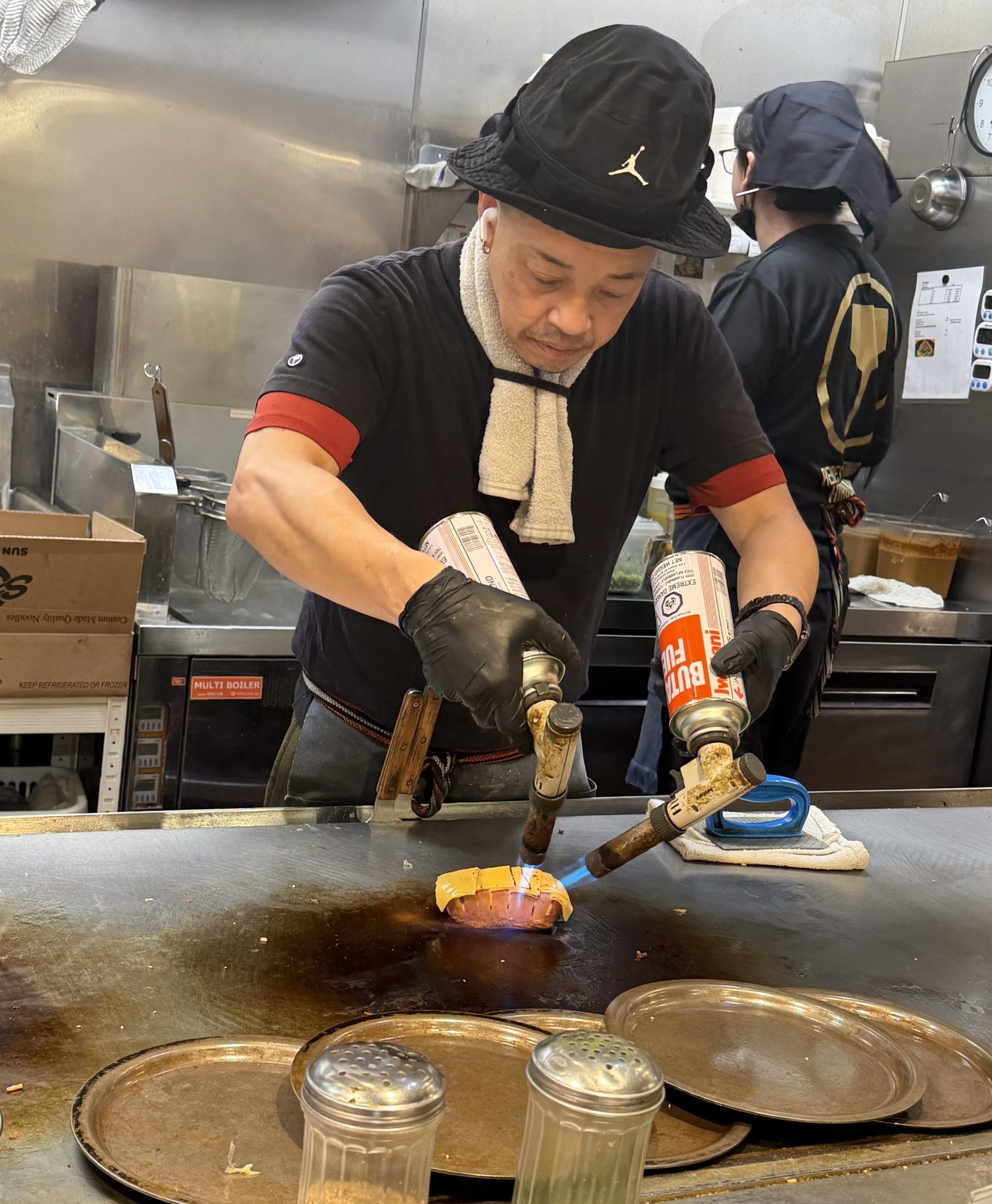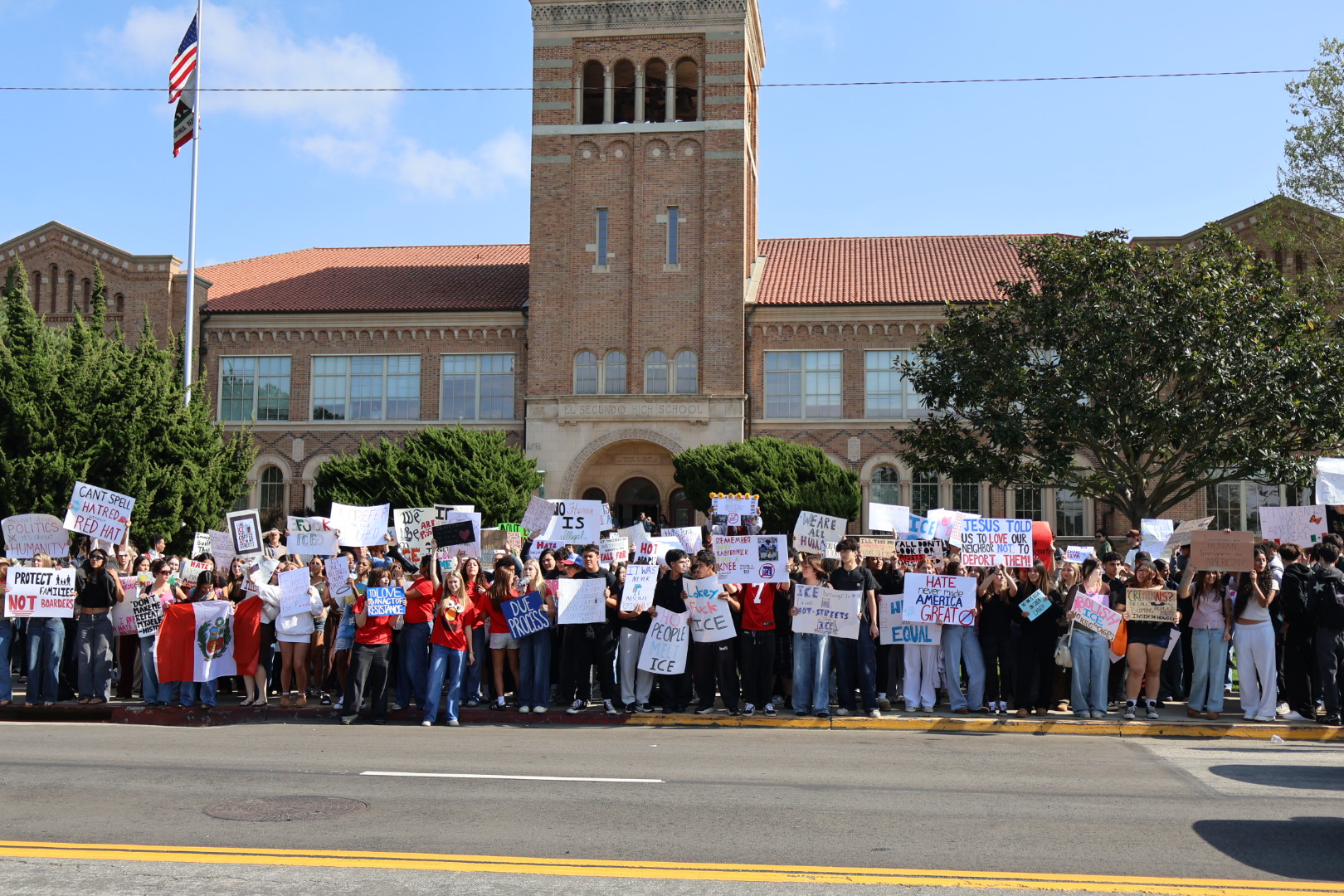Then there is the second, third, fourth things: primary care, mental health, socialization and employment — Moonstone case manager Richard Pacheco
by Garth Meyer
“Sometimes we need to have honest, frank conversations with our friends and neighbors about our friends and neighbors’ need for housing,” said L.A. County Supervisor Holly Mitchell, at a ribbon-cutting October 17 for The Moonstone, the first supportive housing project in the South Bay, at a former 20-room motel on PCH in Redondo Beach.
“Housing is the solution to homelessness, it really is that simple… This is housing first. I fundamentally believe it’s the strategy that works,” Mitchell said.
“This is what highlights the best of us,” said Redondo Beach City Councilmember Paige Kaluderovic.
“Housed and unhoused, they are our neighbors… We are not shoving our problems onto others. I do have friends who live here.”
Moonstone resident Jason Newton told the crowd of foster care as a child in Kentucky, instances of homelessness, then moving to Redondo Beach in 2020 and becoming homeless here.
“The first few months I had nothing but a backpack and a job,” he said; at Kincaid’s at the Pier as a line cook, which he maintained.
He lived in a car, then at the city’s pallet shelter.
“Going from the prison of an open world to the freedom of your own home,” he said.
Newton is now a student at El Camino College, looking to complete a degree in business administration in December.
City Councilman Nils Nehreneheim, in his remarks at the grand opening, noted a 2022 community meeting for his district at Alta Vista Park, soon after the Moonstone project was announced.
“Never before, and never again since,” he said of the size of the packed, animated crowd. “A trial by fire.”
City Attorney Mike Webb also spoke at the ribbon-cutting, about when he was asked by the late Redondo Beach mayor Bill Brand, five years ago, to lead the effort on homelessness, “which I knew nothing of.”
He thanked Newton and the 19 other Moonstone residents.
“You’re an inspiration to us on a daily basis,” he said.
He also thanked Nehrenheim and the city council.
“It takes a lot of courage to stand up to constituents who think homelessness is somebody else’s problem,” Webb said.
Lila Omurra, Redondo Beach housing navigator, told the gathered that a few of the people she helped lead to the Moonstone “I didn’t even recognize this morning.”
“All politics is local,” said Brian D’Andrea, housing senior vice president for Century Housing, the non-profit which helms the project. “The Moonstone captures this perfectly. Impact isn’t always about size. In the case of Redondo Beach, this was a clear need, a committed city and clearly a committed staff.”
The 20 tenants moved in July 1.

The example
Jason Newton moved here from Lexington, Kentucky in March 2020. He had family in the South Bay and came to support them, he said. He tells of spending time as a college student at Eastern Kentucky, then the University of Kentucky in hospitality management.
“I want to continue in the hospitality field, management or administration, behind the scenes,” he said.
He was hired at Kincaid’s July 15, 2022. He became homeless that October.
“It was definitely an experience I was not prepared for. It wasn’t my first time, but to the extent that it was, being alone in places I knew nothing about,” Newton told Easy Reader. “I was one of those people who thought, if only they’d have a job and put in effort. And there I was with the job and with the effort. It could really happen to anyone.”
“The term homeless is not a blanket term. It’s really surprising how varied the backgrounds are. It’s interesting how so many people can be treated because of one term.”
“I was the last of the family to leave Kentucky,” he said.
He moved out of his local family member’s place because of “hardships that couldn’t be overcome; it came to a point, to avoid any further conflict, I left. I wandered around the South Bay. The first night I slept under a lifeguard ramp.”
He told his boss at Kincaid’s of his situation.
Eventually, Newton found a spot near the Redondo Beach Pier to put up a tent. When he saved enough money to buy a car he parked it on the Avenues, and elsewhere.
“I got a second job when I got the car, delivery driving.”
He used the showers on Redondo Beach by the restrooms, then got a membership to Planet Fitness for better access to necessities.
“Also to work out, just something for me to do,” he said.
The majority of his paycheck went for car payments and insurance. He bought a 12-volt crock pot to use, then a butane burner.
“I applied for food stamps, but they said I made too much money. Luckily, I work in food service; you get a shift meal.”
He ate at the Salvation Army next to the AES power plant three times per week. Newton picked up more food at a Torrance distribution he knew of from when he had volunteered at Saddleback Church.
“A lot of tuna,” Newton said of what he ate.
On an average day, he got up early, “just to get out of the way,” went to Planet Fitness to exercise and take a shower, then ate and went to his first job. Then onto Kincaid’s on the Pier for his full-time night job, and back to his car to find a place to park for the night.
The Carvana car was delivered to him at the Redondo Post Office parking lot, where he had a Post Office box.
“I have zero debt besides this now,” Newton said of the no-down payment required purchase.
One day at the Salvation Army, a woman who worked there gave him the name Lila Omurra.
Newton contacted her, and after some crossed wires, she invited him to meet at the homeless court on the Hermosa Beach tennis courts. Omurra introduced him to two case workers, and last December, he moved into the Redondo Beach pallet shelter (which the city opened three years before, the first in the South Bay).
“I was thrilled. I was completely thrilled,” Newton said.
He reports that he started three more classes at El Camino this week.
“We’re supposed to all think becoming homeless is our fault. I am forgiving myself. It’s situational things, and they happen, and you keep doing what can be done,” he said. “I have faith that God doesn’t give us anything we can’t overcome.”

Managers
A year ago, Terry McNamara was sleeping on a bench at 7-Eleven at 190th and Meyer Lane. He got into one of the 8-foot by 8-foot pallet shelter units for eight months, and now has an apartment at the Moonstone. The Redondo Union High School graduate was once an altar boy at Our Lady of Guadalupe Catholic Church.
Some of Moonstone’s residents like McNamara and Newton work, some are retired due to age or disability, and some are looking to get back into the workforce.
“It’s a whole gamut of things,” said Richard Pacheco, Moonstone’s case manager. He works on site Monday through Friday, 8 a.m. to 5 p.m., helping residents with any and all life matters.
Some tenants went through the Redondo Beach homeless court program, which offers a fast-track to clearing criminal records to qualify for housing.
“This is one of the outcomes, if you work through the system,” Pacheco said.
Sixteen of the Moonstone’s residents lived at the Redondo pallet shelter.
“More than one person has relatives a few blocks away from here,” said Pacheco.
The Redondo Beach Housing Authority matches the person with the Moonstone program.
“For me it’s about people and being close to them,” Pacheco said. “I know it sounds like a cliche. We’re going to be part of each other’s lives. People who don’t have anybody else to turn to, they can turn to me. That’s the charge I get out of it. That’s the difference I made for somebody that day.”
“The ideal between me and (property manager Alex Galdamez) is to say, ‘Everything’s quiet.’ They’re living their lives,” Pacheco said. “Then we start the next day.”
Galdamez is a 2022 Leadership Redondo graduate. He has lived full-time at the Moonstone property since soon after it was bought two years ago.
“It’s been going great,” he said of the first two months with residents. “To be able to see the difference it makes in their lives, the effect on their demeanor to get out of that survival mode.”

“This is our site,” Pacheco said. The Moonstone’s population meets his L.A. County Department of Health caseload limit of 20 people.
Pacheco, who lives in Palos Verdes, has done this for Century Housing for two and a half years, and previously at the U.S. Veterans Initiative in Long Beach. Earlier, he worked as a medical assistant at Torrance Memorial Hospital Cancer Care and a senior living complex in Rolling Hills. Before that, he spent 20 years working for the U.S. government, mostly overseas. His degree from USC is in International Relations.
“You’re part of someone’s healing,” he says of his work now. “You’re helping people recover from whatever they need to recover from to keep their housing.”
“I’m a very bottom line guy. Housing first, then there is the second, third, fourth thing: primary care, mental health, socialization, education and employment.”
No limit exists for how long a resident may live at the Moonstone, at 716 South Pacific Coast Highway.
Requirements
Century has owned and operated projects like this for 25 years, including the Villages at Cabrillo, which was formerly the Savannah-Cabrillo Naval Shipyard Housing.
Qualifications to move in to the Moonstone include a status of “chronically homeless,” proof of income – whether from a job or government assistance – a background check, credit check, and ties to Redondo Beach.
“The barriers are quite low,” Pacheco said.
Violent crime convictions mean denial.
Tenants sign a 12-month lease, subject to standard apartment building’s rules. After one year, Moonstone residents are eligible to receive a Section 8 voucher, which they may use to move to other housing.
Resolution
Century’s Brian D’Andrea was at that Alta Vista community meeting with Councilman Nehrenheim two years ago.
Any controversy now?
“Within any community, there are those who support this and those with questions and concerns…” he said. “We’ve sought to be transparent, we’re here for the long haul, so far we’ve been really pleased with the local response.”
City Attorney Webb is happy with what he sees at the former motel.
“I think (it is evident) this is really changing lives,” he said. “From temporary transitional housing at the pallet shelter, to permanent supportive housing at the Moonstone with wrap-around services.”
The project is funded by a $5.9 million grant from California Department of Housing and Development, and a $2.6 million matching grant from Los Angeles County. ER









3 Responses
Noticeably absent from this event are the neighbors who live in this area. At nehrenheim’s last community meeting, there was outrage over an incident at this facility where one of the residents threatened another and police were called. Apparently that resident was transported from the site and neighboring residents were concerned. What happened, and was that resident allowed to return to the project?
Noticeably absent from this event are the neighbors who live in this area. At nehrenheim’s last community meeting, there was outrage over an incident at this facility where one of the residents threatened another with a knife and police were called. Apparently that resident was transported from the site and neighboring residents were concerned. What happened, and was that resident allowed to return to the project?
I hope the people in Redondo know what a gift Mike Webb has been to the city. Mike Webb, our elected city attorney, makes me so proud to live here. He is a true servant leader, always calm and patient. This is incredibly important and difficult work and he has done an amazing job. Thank you so much Mike Webb!